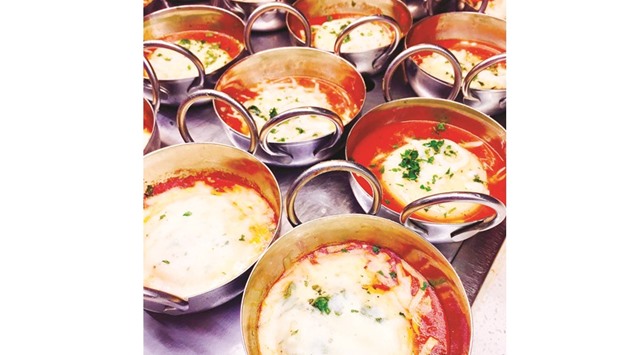The Arabic cuisine is rich and has a deep inherited value attached to it. When it comes to selection of dishes, they always follow traditional rich dishes that have been carried forward through generations.
The Arabic cuisine has a combination of various cuisines from the region and at times it becomes difficult to state or trace the roots of one particular dish to one region. The Arab cuisine can be mainly classified into Levant, Maghreb and Khaleej, and all have similarities yet are distinct from each other. The raw ingredients and main dishes remain the same with little deviation in their style of preparation and in the way they are offered to the guests.
Middle Eastern cuisine is a bundle of tradition that is bonded together, the region spans from Northern Africa to Persian Gulf. The food in the region has been shared and replicated across the world. The credit for making any cuisine international and spreading the awareness about it goes to the travellers who travel for trade between continents and not only carry the goods to be traded but also the culture and traditions from one place to another. Hummus, Shawarma, Tagine, Arabic coffee are some good example to prove that.
Let’s now talk about the first meal of the day — the breakfast. Breakfast is an integral part of Arabic culture and is a lavish affair. The breakfast is heavy and includes an array of dishes. Processed foods are avoided and they prefer fresh ingredients like vegetable, local cheese, dairy produce, fruits, and herbs.
Some common items popular for the breakfast are olives, yoghurt, tomato, hummus, foul mudammas, shakshuka, warak enab, cheese, tea or coffee, harees, jareesh and others. These dishes are simple and are served along with each other to make it a lavish spread. During my stay in Qatar, I often used to go to Arabic restaurants to enjoy this delicious spread of Arabic hospitality and explore more about the cuisine.
Making your own Arabic breakfast spread is easier than it sounds, just read about it and take the various options available and mix and match depending on the availability of the ingredients and personal preference — and your own customised Arabic breakfast is ready. The flavours that are preferred in the region are cardamom, saffron, tahini, cumin, and yoghurt.
Talking about the importance of breakfast, nutritionists around the world have a common statement about breakfast, that it is the “most important meal of the day” and has been directly linked to the overall wellbeing of an individual. But due to their busy lifestyles, many people tend to ignore the fact that it is very important to have breakfast for a good day’s start.
There are a few reasons people don’t eat breakfast in the morning, such as not feeling hungry, trying to limit calories, or simply not having enough time. However skipping breakfast can lead to a number of problems and can be detrimental in one’s quest to losing weight and keeping it off.
If you are trying to achieve or maintain a healthy weight, consider the following reasons. Eating breakfast regularly revs up your metabolism after fasting for the whole night. It also keeps you in a good mood as feeding yourself in the morning will keep your spirits up throughout the day.
One particular dish that I personally like is shakshuka and I am delighted to share its recipe below with my readers. It is a simple yet wholesome dish which requires less preparation and cooking time.
Shakshuka
Ingredients
Serves 2
Eggs 6 no
Olive oil 1 tbsp
Onion, chopped ½ cup
Garlic, chopped 2-3 cloves
Bell pepper, chopped ½ cup
Tomato, chopped 1 cup
Tomato paste ½ cup
Chili powder ½ tsp
Cumin 1tsp
Paprika 1 tsp
Salt to taste
Sugar ½ tsp
Pepper to taste
Parsley, chopped 3 tbsp
Mint, chopped 1 tbsp (optional)
Method
Heat olive oil in a deep, heavy bottom skillet on medium heat.
Add chopped onions and sauté for few minutes, till they turn translucent.
Add chopped garlic and continue to sauté until the smell of garlic disappears.
Add chopped bell peppers and continue to sauté over medium heat.
Once combined, add tomato and tomato paste and stir to combine all the ingredients.
Adjust the seasoning using salt, sugar, pepper, chili powder, cumin and paprika, according to your preference.
Crack the eggs, one at a time, directly over the tomato mixture, space them evenly over the sauce.
I usually place the sauce in small individual serve-ware and place 2-3 eggs in each serving bowl for individual portions.
Cover the pan and allow the mixture to simmer for 10-15 minutes or until the eggs are cooked and the sauce has slightly thickened.
As the sauce is thick, keep an eye on the skillet or pan to avoid the mixture burning.
Sprinkle with generous amount of chopped parsley, mint and olive oil drizzle.
Note: Some people prefer to keep the eggs runny, but I like my eggs to be well done, the consistency of the shakshuka can be as per one’s preference. You can enjoy this delicious Arabic breakfast dish anytime of the day and enjoy it with pita bread.
* Chef Tarun Kapoor,
Culinary Mastermind, USA. He may be contacted at [email protected]

Shakshuka.- Photo by the author
